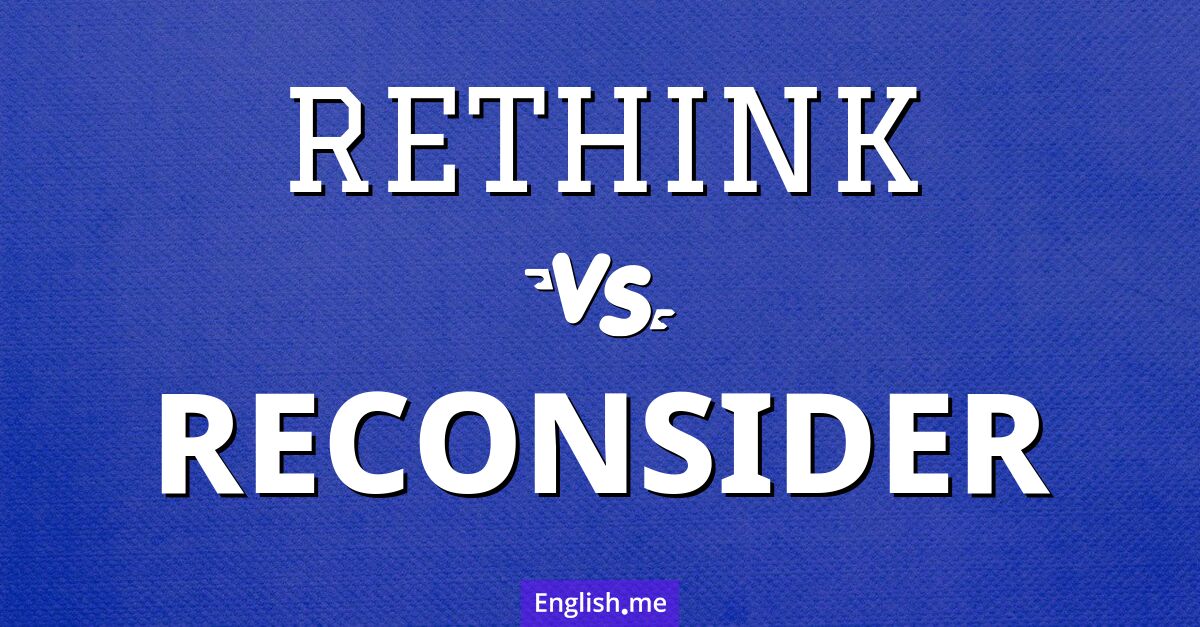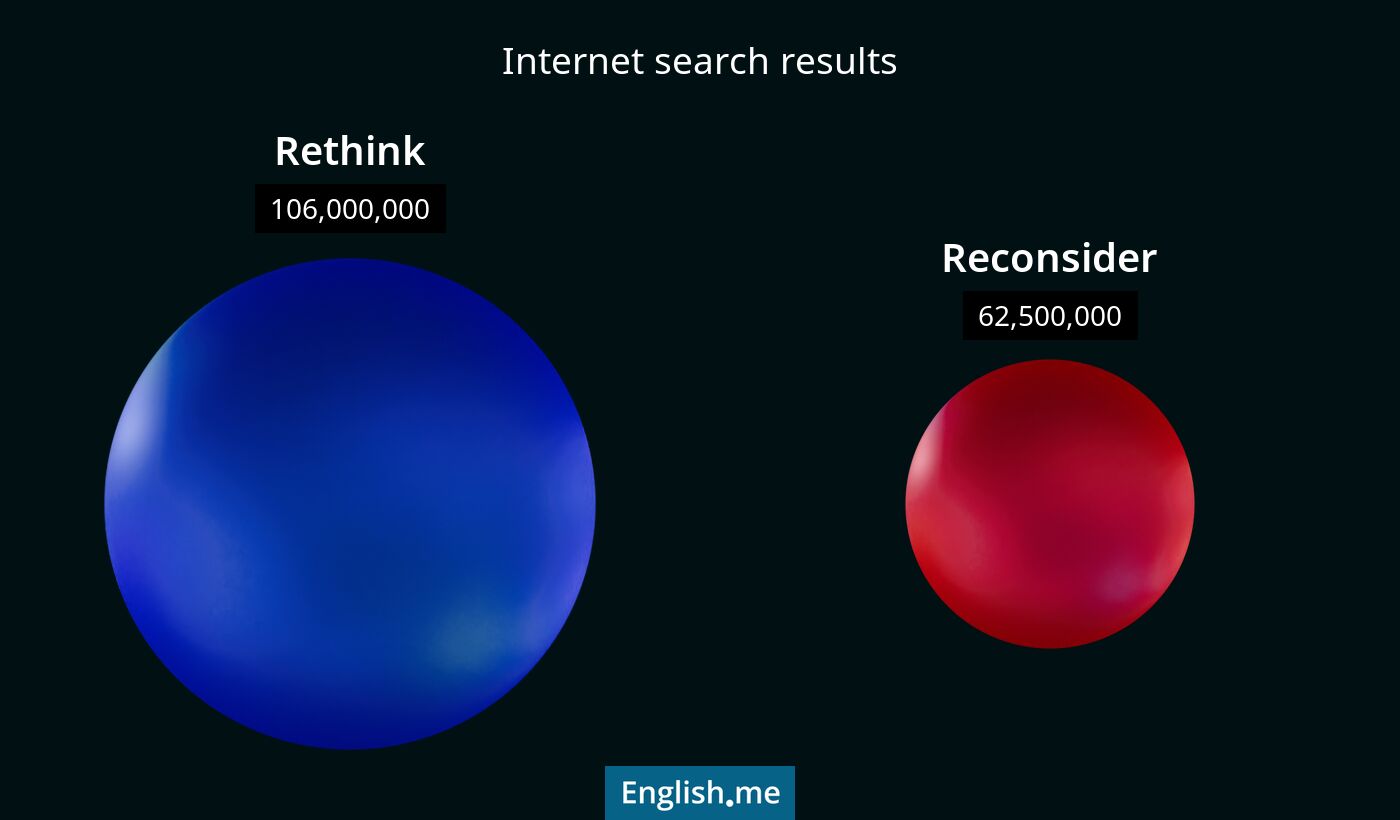"Rethink" vs. "reconsider": two paths to new perspectives
Reviewed and edited by  Lloyd Cooper 19/10/2024, 09:43
Lloyd Cooper 19/10/2024, 09:43
English.me team member

 What is similar?
What is similar?
Both "rethink" and "reconsider" involve the process of thinking again about a decision, idea, or plan, typically to evaluate whether it should be changed or maintained.
 What is different?
What is different?
"Rethink" implies a deep or fundamental reevaluation of an idea, often suggesting a broader change in perspective, while "reconsider" is more about reviewing the decision made, usually suggesting a less fundamental review than "rethink".
 Which one is more common?
Which one is more common?

 Examples of usage
Examples of usage
Rethink- We need to rethink our strategy for the upcoming project.
- After hearing the new evidence, she decided to rethink her previous stance.
- The company will have to rethink its marketing approach in light of recent trends.
- The committee will reconsider the proposal next week.
- He had to reconsider his travel plans due to the weather forecast.
- After receiving feedback, she decided to reconsider her initial offer.

 English
English español
español française
française italiano
italiano deutsche
deutsche 日本語
日本語 polski
polski česky
česky svenska
svenska Türkçe
Türkçe Nederlands
Nederlands